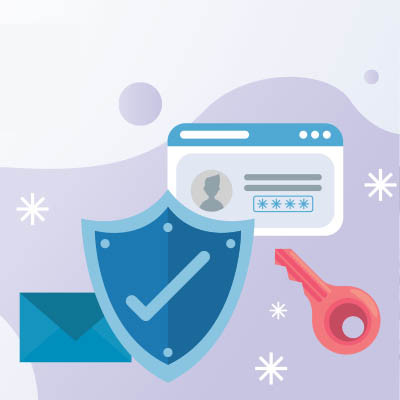Computerware Blog
Have you ever heard of the concept of going passwordless? Considering how passwords have been central to data security and authentication for so long, you might be a little hesitant about the idea. However, data show that there are better options out there. Here are some of the better passwordless options your organization can implement.
Businesses and their employees ultimately need a lot of different online accounts, which means there are a lot of passwords that need to be sorted. To assist with this, many have turned to using password managers—applications that store passwords in an encrypted vault. There are a lot of reasons that these password managers are a popular choice. Let’s go over a few of them.
It’s no secret that passwords have long held center stage when it comes to data security, but if we’re to be honest, a password just isn’t sufficient to protect your business. Don’t get us wrong: passwords remain immensely important, but their role has diminished with the availability of other, more advanced security features. One of these features is something called multi-factor authentication.
With so many accounts required on an everyday basis, it’s no surprise that people often struggle with passwords and password security. One way that individuals try to manage the countless passwords used on a daily basis while keeping them secure is through the use of password managers. What does a password manager do, and why should you consider implementing one for your business?
In today’s business environment, where ransomware strikes just as often as just about any other threat out there, you need to take as many precautions as possible so that your organization does not become another victim or statistic. All it takes is looking at reports from various security firms to understand just how important even the most basic of security measures—the password—is toward keeping businesses safe.
Do you use different passwords on every account you’ve created? Are these passwords sufficiently complex? Chances are at some point you have repeated at least one password. Remembering 35 different logins for 35 different applications is hard enough, so it’s not surprising that the majority of people will use the same password for many applications. Bad password practices are all too common. So, how can you fix this?
Passwords are effectively the cornerstone of your business’ data security—if they aren’t up to muster, your protections could crumble. Unfortunately, many users shortchange their passwords to try to make them more convenient, also making them more convenient for cybercriminals. Let’s see how we could (and should) make passwords as effective as possible.
Weak passwords are a huge problem, one that almost everyone is guilty of. Even if you think of yourself as being a diligent, security-minded person, you probably have at least one or two passwords that are common words, followed by a digit or two, followed by an exclamation point.
I’d be willing to bet that the digits in your password represent either your birthday, your anniversary, or your favorite football player’s jersey. With a little time, anyone could gain access to your account. That’s where two-factor authentication comes in.
The nature of many of today’s businesses is building one product over and over and over. When you have that level of repetitiveness, it helps people find their niche, yes, but it can also result in the attention given to the task to suffer. While a disengaged employee is nothing new, they can cause some operational problems. By and large, a couple of staff hiccups won’t have a huge impact on your business, unless that lack of engagement impacts your cybersecurity. That’s because there are some threats out there that could absolutely cripple your business’ ability to sustain operations. Today, we’ll talk about how to get your staff to care about malware, hackers, and the like.
Common opinion more or less states that passwords aren’t so much “necessary,” as they are a “necessary evil.” The best practices that are recommended to maintain the efficacy of passwords today can certainly feel excessive - which tempts many users into ignoring these practices, to the detriment of their security. Fortunately, many large companies - like Google - are trying to make passwords easier to manage.
After 143 million people had their personal information put at risk in the Equifax data breach, it comes as no surprise that data security is an even hotter topic than usual. As much as you’d like to think that a breach like that would never happen to your business, this is an unrealistic hope that won’t do you any good if the threat of a data breach does come around. It is much better to be prepared.




















